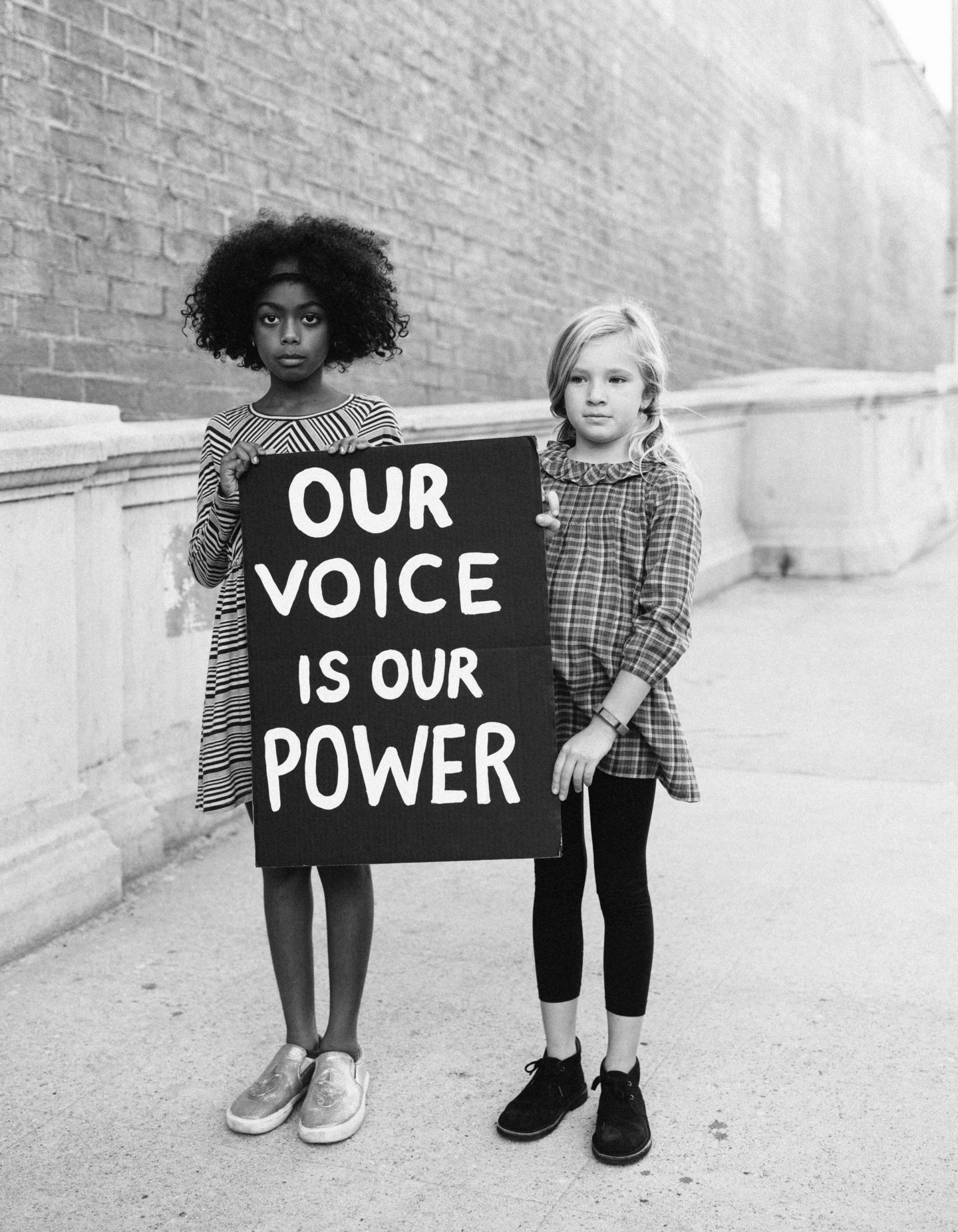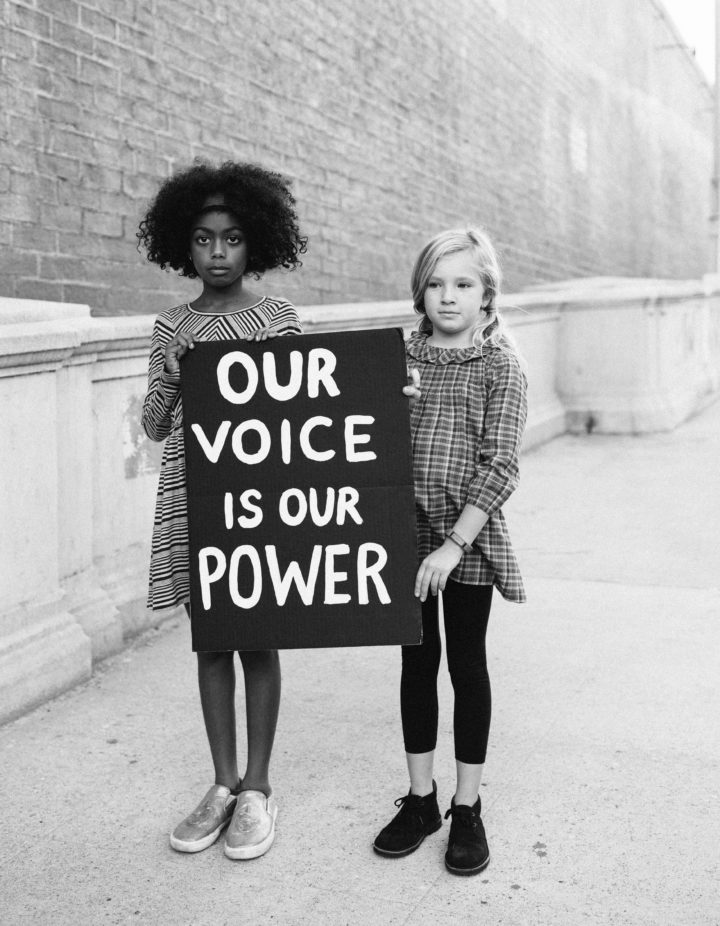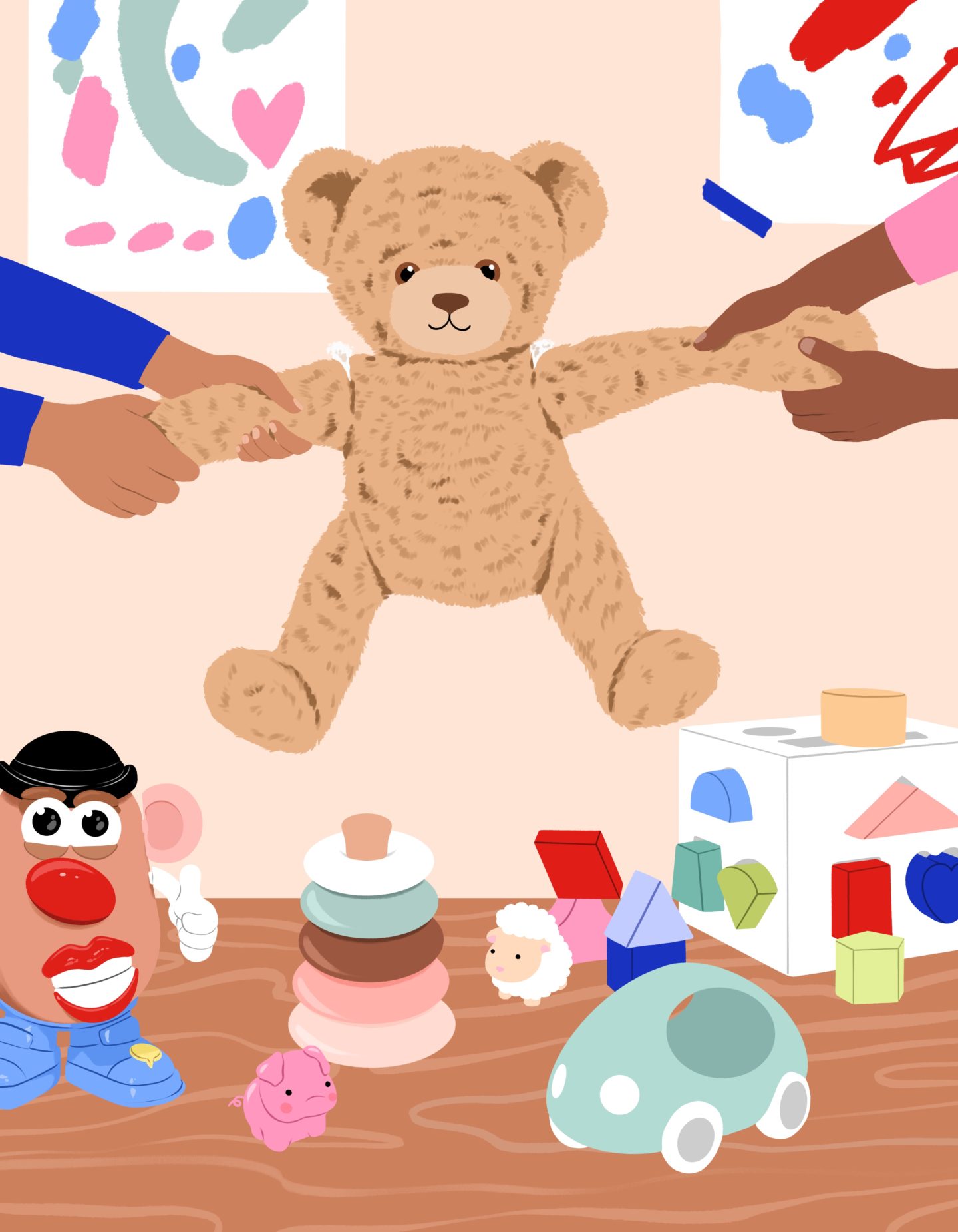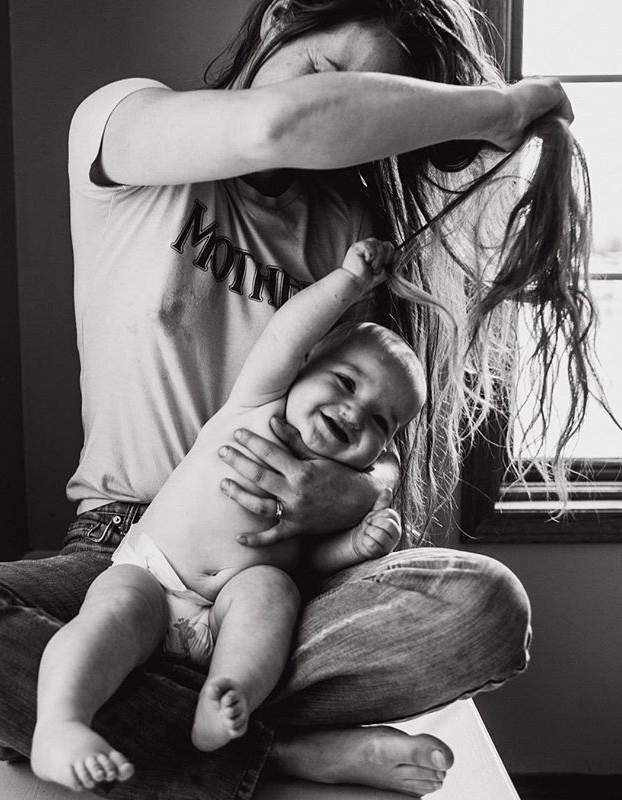 From starting solids to sleep training, parenting is full of decisions that most of us are making on the fly. Should we go back in and rock them to bed? Is television really the worst thing ever? Most of our choices reflect our individual perspectives on parenting, family and various levels of by-the-bookdom, but once in a while it helps to call in the big guns like a true expert opinion. So we’re bringing you answers to common parenting questions thanks to Babe’s resident pediatric expert, Dr. Aliza Pressman, Ph.D., co-founder of the Mount Sinai Parenting Institute and host of Raising Good Humans podcast. This week she tackles how to raise socially conscious kids and future voters and how to have politically charged conversations at home.
From starting solids to sleep training, parenting is full of decisions that most of us are making on the fly. Should we go back in and rock them to bed? Is television really the worst thing ever? Most of our choices reflect our individual perspectives on parenting, family and various levels of by-the-bookdom, but once in a while it helps to call in the big guns like a true expert opinion. So we’re bringing you answers to common parenting questions thanks to Babe’s resident pediatric expert, Dr. Aliza Pressman, Ph.D., co-founder of the Mount Sinai Parenting Institute and host of Raising Good Humans podcast. This week she tackles how to raise socially conscious kids and future voters and how to have politically charged conversations at home.
Q. Dear Aliza,
With the upcoming 2020 election, I want to take the time to show my little ones how they can take action and grow up and become socially conscious voters of their own. It seems like a paramount moment, but I’m not sure how to best demonstrate the importance of voting for such a little kids (3 and 18 months). I also have a mother-in-law with very different political views than my own. How do I model responsible discourse in front of my children when the differences in opinion are so severe?
– Lindsay C., mom to Stella, 3 and Owen, 18 months.
A. “The first thing is that we know kids model and learn best through our authentic modeling. So if we want kids who care about voting or who are social justice oriented, there’s no shortcut. It means you gotta get the postcards and sit down with your kids and send them out to voters. And you have to put signs up and do the things. There’s no greater lesson for them than watching you act. Even babies, bring them to vote with you (even though it’s kind of a funky time for that). Show them how important it is to you and what a privilege it is. Make a ritual of it, where you’re not just paying the bills, but you’re voting. Have a voting breakfast party. Make it special.
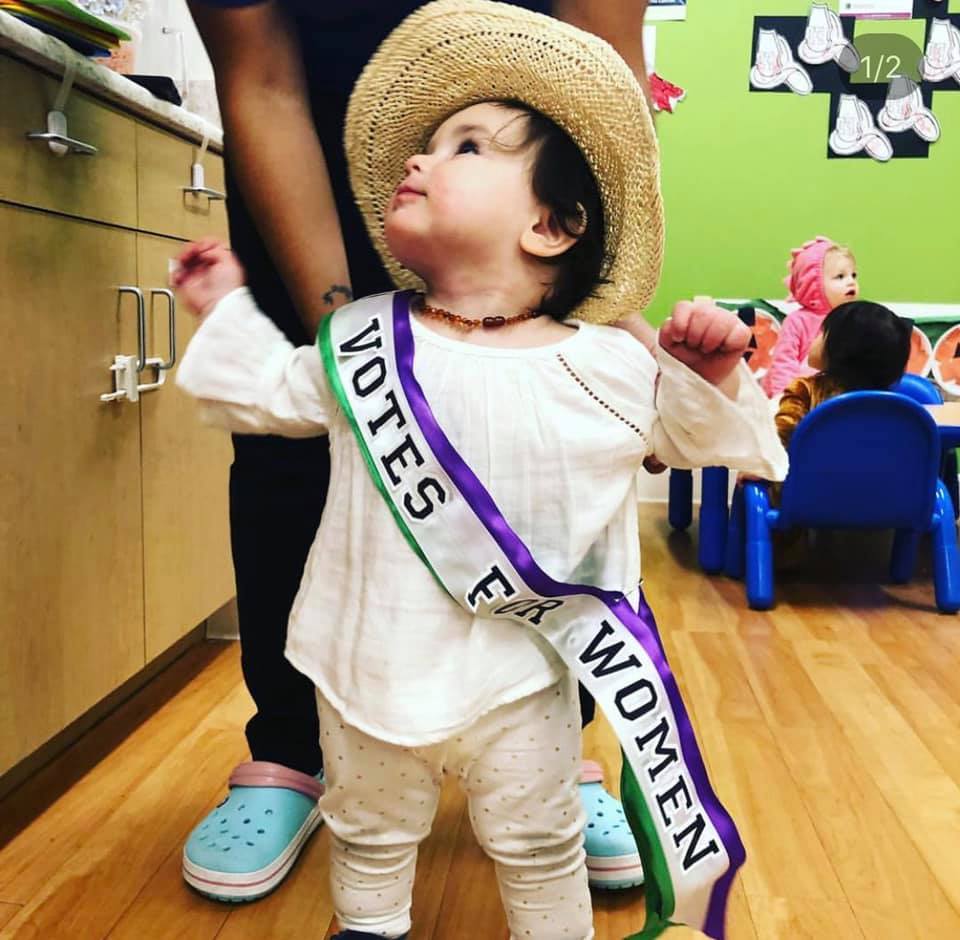
Photo by Rachel Miller
This election is particularly difficult. It’s a fine balance. You don’t want to overshare with them regarding the politics of the world and get stuck in nasty rhetoric. But in looking at the big picture of things you care about, decide how you can make changes. That’s why things that seem performative, like signs in the yard or pins are actually fun for kids. It’s fun for them to make signs and wear hats and participate with those kinds of things. The performance of it may very well be more useful when you have kids because even if you look at older kids, teenagers are constantly posting social media political beliefs and making lots of supporting social justice through social media. As much as we adults eye roll at the performance of it all, there’s something happening. They’re connecting over a collecting concern socially and that’s a good thing. And all those things turn into social activism over time. Include kids in things that get positive feedback in social activism and that are concrete, like filling out addresses on postcards for swing votes. Anything that makes it a thing. If you talk about it constantly, that won’t do anything. It’s like reading the paper in front of kids. But let them get excited about it by watching the debates. Ideally you want to teach them to be critical thinkers who can make good voting decisions.
Include kids in things that get positive feedback in social activism and that are concrete, like filling out addresses on postcards for swing votes.
If you and your partner differ politically, that’s super exciting, actually. You have an opportunity to show your kids you have more than one POV and how people with different POVs can have a proper exchange. We haven’t really had an opportunity to model that kind of thing. So it can be really wonderful if you can. But you want them not to have their views because they’re copying you but because they’re critical thinkers. So when they say something, dig deeper at why they feel that way. But be sure to do more than talk sh*t about the other party. Give them something specific. The other thing is taking action is always more effective than talking about how awful things are or other people are. These kids have the opportunity to grow up in a world where it isn’t even an option to not be voting, it’s not even acceptable. It’s such a critical time and you cannot be lazy about it. For a long time, there’s been a lot of resting. If we can look at it that way, these kids have the best opportunity to be the generation that makes a huge difference. It’s so important to parents right now and it’s so great.”
